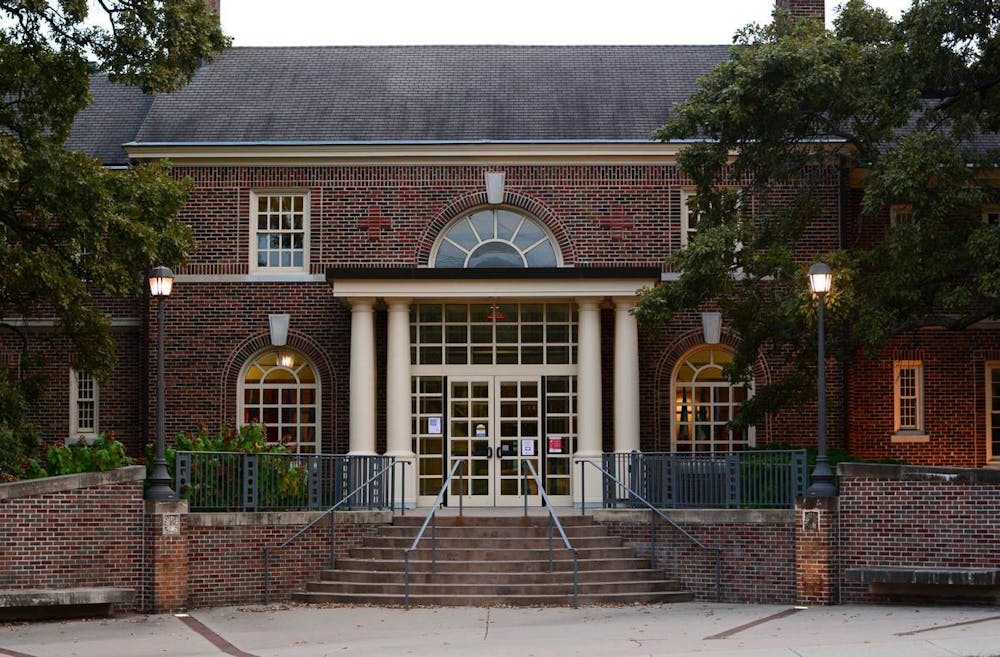Like most buildings on campus, MacMillan Hall, home to International Student and Scholar Services (ISSS), has seen little to no student traffic for the past few months since Miami University transitioned to remote learning — and it may stay that way throughout the semester.
There are approximately 1,680 international students enrolled at Miami’s Oxford campus this fall, and around 45% of them will be studying from outside of the United States, said Director of ISSS Molly Heidemann.
While ISSS’ primary function is to advise international students on visa, immigration and government concerns, the department also runs international student orientation and programming and events.
Because nearly half of Miami’s international student population will not be returning to campus this fall, ISSS is making adjustments to continue to support them.
By revamping services it already provided in the past — like webinars, a weekly newsletter and the International Peer Orientation Leader program (iPOL) — Heidemann hopes to keep Miami students engaged no matter where in the world they are.
“We have a few ideas [for programming] floating around,” she said. “It’s hard to know right now what students will want to participate in, especially when everybody’s in front of their computer all the time.”
Raj Chag, a senior marketing and entrepreneurship double major, was born in India but has spent most of his life in the Democratic Republic of the Congo (DRC). In the southeast corner of the country is the city of Lubumbashi: the place Chag calls home and, for now, his classroom.
In his new time zone, six hours ahead of Eastern Standard Time, Chag feels like he’s missing out.
“One of the key reasons that I did travel to the U.S. initially is for the whole college experience,” he said.
But there are some benefits to being on a different continent.
“I’m actually taking classes that are … happening at 8 a.m. [in the U.S.],” he said. “I’m taking those morning classes, but I’m not really waking up for morning classes, so that’s nice.”
Chag hasn’t asked for many accommodations in classes, but most of his professors are willing to help when he does ask.
Enjoy what you're reading?
Signup for our newsletter
“If I’m a little late for class, they’ve been OK with that,” he said. “They’ve been a little bit more flexible with deadlines, as well.”
While the majority of his professors have been understanding, there are a few that have not.
“There are certain professors that are very strict about certain deadlines and certain ways that they want to do their class,” Chag said. “That's just their teaching style, and I don’t really take that personally.”
As students return to campus for in-person classes next week, Chag does not have any intention of coming back to Oxford this semester.
After watching the number of COVID-19 cases on campus surpass 1,000 and continue to grow rapidly, he feels his choice to remain remote is validated.
“I really want to come back and be in person, but I just don’t think it’s the smarter decision,” he said. “As an international student, there’s a whole travel factor — flights and airports — and that’s where I think the hot spots are.”
Sophomore mechanical engineering major Nikita Shubin is more than five thousand miles away from Miami.
After finishing last semester in Oxford, Shubin traveled home to Moscow, Russia, and is now taking 20 credit hours from halfway around the world.
“The worst is scheduling,” Shubin said.
Though most of his classes are asynchronous, the ones that are synchronous don’t require his attendance, and the lectures are recorded for him to watch later.
Accessibility to certain class materials has also been an issue for Shubin, but his professors have been helpful when it comes to troubleshooting. For one of his classes, his professor assisted in getting books electronically from the library.
“Since I’m staying in Russia, I cannot receive my books,” he said. “The delivery [would] take too long.”
During a normal semester, Shubin is actively involved in student organizations like Miami Activities and Programming (MAP), RedHawk Racing and the Outdoor Adventure Club.
“I’m still trying to participate in them, but when you’re not in person … they are not as fun and satisfactory,” he said.
But like Chag, Shubin is not planning to return to campus this semester.
“It took me a really long time to make this decision,” he said. “I thought through all the possibilities … [Returning] would be dangerous.”
Dr. Kimberly Hamlin, associate professor of history, is teaching two classes this semester, each including around five international students. Most of them are taking her courses from their home countries.
“They are basically up all night, as far as I can tell,” Hamlin said. “They said that’s their norm now.”
Even given the 12-hour time difference, her students have not requested any special treatment.
“The students in Oxford have honestly asked for way more accommodations than the students in China,” Hamlin said.
Once on-campus learning resumes, Hamlin’s classes will become hybrid: half online and half in person. She plans to continue offering an all-online course to help her students who won’t be returning and allow them to continue taking classes.
While international students who are staying away from Oxford this semester are dealing with the woes of the coronavirus, they are hoping things will begin to look better in the near future.
“I really hope [next semester is better],” Chag said. “It’s my last semester, so I don’t want to end on this note.”




